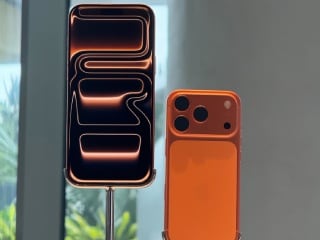- Home
- Transportation
- Transportation News
- Apple Scientists Disclose Self Driving Car Research
Apple Scientists Disclose Self-Driving Car Research

Research by Apple computer scientists on how self-driving cars can better spot cyclists and pedestrians while using fewer sensors has been posted online, in what appears to be the company's first publicly disclosed paper on autonomous vehicles.
The paper by Yin Zhou and Oncel Tuzel, submitted on Nov. 17 to independent online journal arXiv, is significant because Apple's famed corporate secrecy around future products has been seen as a drawback among artificial intelligence and machine learning researchers.
The scientists proposed a new software approach called "VoxelNet" for helping computers detect three-dimensional objects.
Apple declined to comment.
Academics are used to freely sharing their work with peers at other organizations. Yielding to that dynamic, Apple in July established the Apple Machine Learning Journal for its researchers. Their work rarely appears outside the journal, which so far has not published any research on self-driving cars.
Self-driving cars often use a combination of normal two-dimensional cameras and depth-sensing "LiDAR" units to recognize the world around them. While the units supply depth information, their low resolution makes it hard to detect small, faraway objects without help from a normal camera linked to it in real time.
But with new software, the Apple researchers said they were able to get "highly encouraging results" in spotting pedestrians and cyclists with just LiDAR data. They also wrote they were able to beat other approaches for detecting three-dimensional objects that use only LiDAR. The experiments were computer simulations and did not involve road tests.
Though Chief Executive Tim Cook has called self-driving cars "the mother of all AI projects," Apple has given few hints about the nature of its self-driving car ambitious.
Last December, Apple told federal regulators it was excited about the technology and asked regulators not to restrict testing of the technology.
In April, Apple filed a self-driving car testing plan with California regulators.
© Thomson Reuters 2017
Catch the latest from the Consumer Electronics Show on Gadgets 360, at our CES 2026 hub.
- Samsung Galaxy Unpacked 2025
- ChatGPT
- Redmi Note 14 Pro+
- iPhone 16
- Apple Vision Pro
- Oneplus 12
- OnePlus Nord CE 3 Lite 5G
- iPhone 13
- Xiaomi 14 Pro
- Oppo Find N3
- Tecno Spark Go (2023)
- Realme V30
- Best Phones Under 25000
- Samsung Galaxy S24 Series
- Cryptocurrency
- iQoo 12
- Samsung Galaxy S24 Ultra
- Giottus
- Samsung Galaxy Z Flip 5
- Apple 'Scary Fast'
- Housefull 5
- GoPro Hero 12 Black Review
- Invincible Season 2
- JioGlass
- HD Ready TV
- Laptop Under 50000
- Smartwatch Under 10000
- Latest Mobile Phones
- Compare Phones
- Samsung Galaxy A07 5G
- Vivo Y500i
- OnePlus Turbo 6V
- OnePlus Turbo 6
- Itel Zeno 20 Max
- OPPO Reno 15 Pro Mini 5G
- Poco M8 Pro 5G
- Motorola Signature
- Lenovo Yoga Slim 7x (2025)
- Lenovo Yoga Slim 7a
- Realme Pad 3
- OPPO Pad Air 5
- Garmin Quatix 8 Pro
- NoiseFit Pro 6R
- Haier H5E Series
- Acerpure Nitro Z Series 100-inch QLED TV
- Asus ROG Ally
- Nintendo Switch Lite
- Haier 1.6 Ton 5 Star Inverter Split AC (HSU19G-MZAID5BN-INV)
- Haier 1.6 Ton 5 Star Inverter Split AC (HSU19G-MZAIM5BN-INV)












